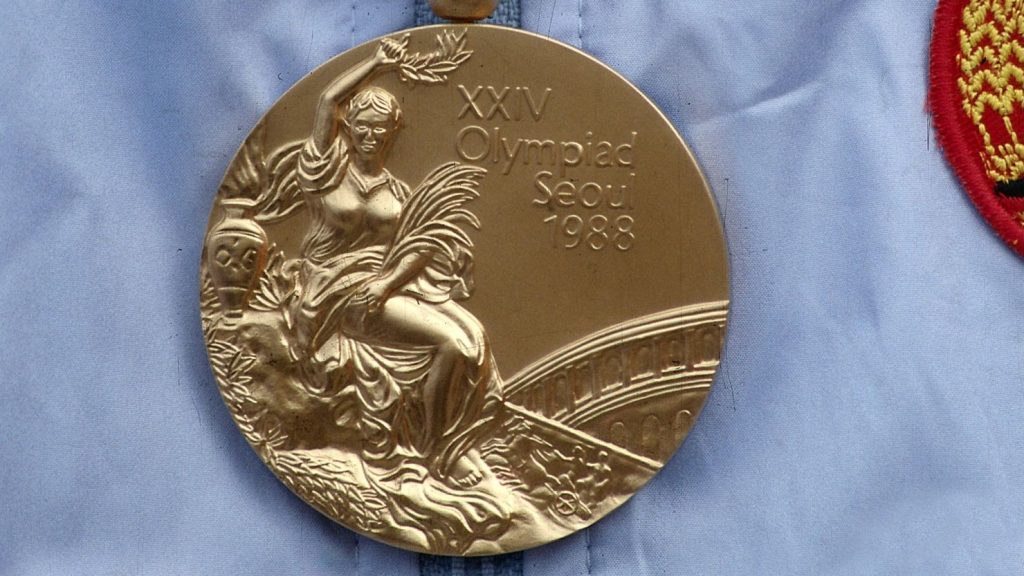Olympic Champion Offers Unique Deal to Recover Stolen Gold Medal
3 min read

Former Hungarian fencer László Csongrádi has found himself in a distressing situation after the theft of his cherished Olympic gold medal. In a remarkable gesture, the 65-year-old champion has offered to bequeath the medal to the thief in his will if it is returned.
Csongrádi won gold in the men’s team sabre competition at the 1988 Summer Olympics in Seoul. The medal, a symbol of his hard work and dedication, was stolen during a break-in at his home on the night of September 10, while he was sleeping peacefully.
The athlete, who has been deeply affected by the loss, expressed his anguish to Hungary’s Sportal website. “For two weeks, I can’t calm down and be happy because everything reminds me of my stolen Olympic gold medal,” he lamented. The emotional toll of the theft has left him yearning for its return.
In a heartfelt plea, Csongrádi stated, “I would give everything to the culprit, but I want him to return the worthless object that means nothing to him. Just drop it in the mailbox. If you want, I won’t leave it to a museum in my will; I’ll bequeath it to him.” His words reflect not only his distress but also a willingness to forgive and move forward.
The gold medal was kept securely in a cupboard, and Csongrádi recounted the eventful night of the burglary. He described how the intruder only fled the scene after Csongrádi confronted him. “He could have taken other important things, but for some reason, he was only interested in the medal,” he noted.
The thief left behind a trail of fingerprints, but without any leads to identify him, Csongrádi feels helpless in his quest to reclaim his prized possession. He added, “The thief touched many things, many fingerprints were left behind, but there is nothing to identify them. I don’t know what to do to get the message across to him: I don’t want to hurt him… you can negotiate with me.”
This unusual offer has sparked conversations about the sentimental value of Olympic medals, which often represent years of dedication, discipline, and sacrifice. For athletes like Csongrádi, these awards are far more than mere pieces of metal; they encapsulate personal stories and triumphs.
In light of his emotional turmoil, Csongrádi has garnered support from the community, many of whom understand the deep connection athletes have with their medals. The gold medal serves as a tangible reminder of his accomplishments and the sacrifices made to reach the pinnacle of sport.
Athletes from various sports have voiced their sympathies and shared similar experiences of losing valuable memorabilia. Australian rower Drew Ginn, who has earned gold medals at multiple Olympic Games, empathizes with Csongrádi’s plight, recognizing how such losses can overshadow achievements.
As time passes, Csongrádi continues to hope for the safe return of his medal. His willingness to offer it to the thief serves as a poignant reminder of the emotional weight carried by Olympic champions. In a world where material possessions are often prioritized, his gesture highlights the profound significance of such awards in an athlete’s life.
In a broader context, the incident raises questions about the security of athletes’ personal possessions, particularly those with historical and emotional significance. As more athletes share their stories, it becomes clear that the value of these awards transcends monetary worth. They embody years of hard work, determination, and the spirit of competition.
Csongrádi’s heartfelt offer to bequeath his stolen gold medal back to the thief if returned speaks volumes about the power of forgiveness and the importance of understanding the emotional ties athletes have to their achievements. As he continues to seek its return, he remains hopeful that his message will reach the thief and that the medal will find its way back home, where it truly belongs.